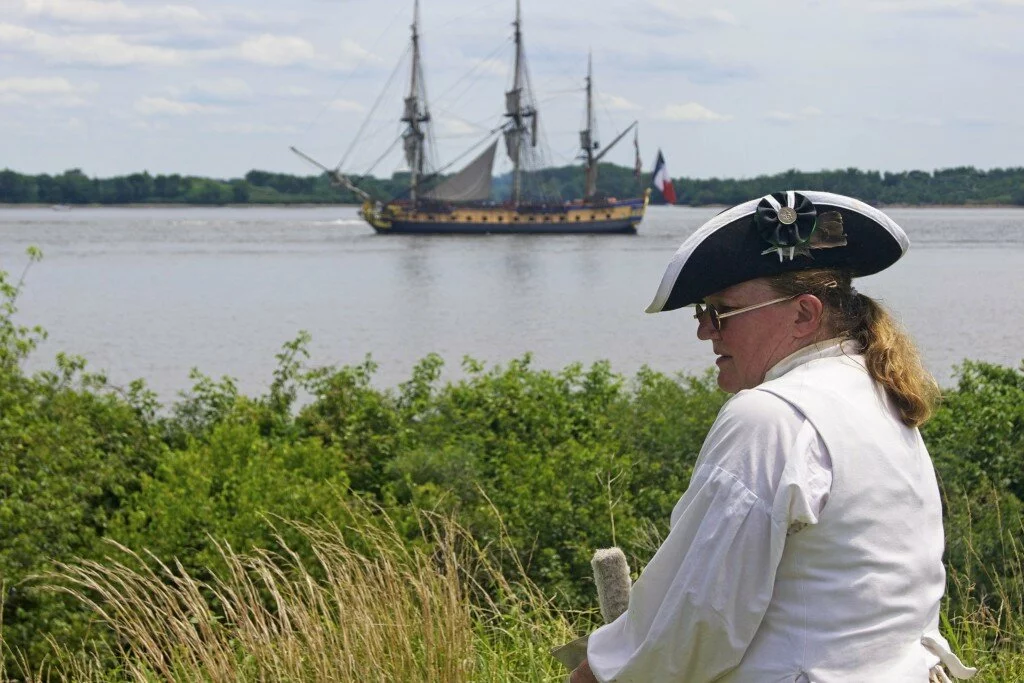 The Navy afloat
The Navy afloat
THE GUARD BOATS or half galleys were similar but much smaller than the galleys. Their area of effectiveness was limited to patrolling the mouths of the creeks flowing into the Delaware, to prevent Tory sympathizers from passing supplies to the British army. They were also assigned to protect the alarm posts established along the bay and river and given command of the fire raft chains. These small boats never ventured on the river if there was the slightest swell, as they were easily swamped. Records from the various shipbuilders indicates that these boats were referred to as flat-bottomed boats. The average cost of building a guard boat was 40 shillings per foot; keel, oars, sails, cannon, provisions not included in that cost.
Various shipbuilders were employed in building the guard boats:
Hill & Merrit: Tormentor and Lion: 35.5 feet keel
Bower Brooks: Firebrand and Dragon: 35 and 37 feet keel, respectively
Dunn & Hale: Resolution and Viper: 35 feet keel
Samuel Robins: Argus, Repulse and Wasp
Williams & Clinton: Thunder
Basilisk, Hawk, Hornet, and Race Horse cannot be identified with a specific shipbuilder.
FIRE RAFTS were considered an effective weapon against wooden ships, and the Committee put about ordering the construction of as many as needed to defend Philadelphia. The size of these rafts varied widely from 35 to 25 feet long. The exact number of fire rafts in service has never been definitely determined. There is documentation to support the building of 8 chains of fire rafts, but as these are simple construction projects other rafts may have been made.
The chains which measured 250 to 280 feet in length were loaded with combustibles and linked together 6 rafts to a chain. Their station was near Fort Island (Fort Mifflin) and the Schuylkill River. The bows had prongs of barbed iron, which, when the fire rafts were driven against an enemy ship, fastened the burning raft to the ship. These rafts were difficult to handle and were often manned by crews of questionable character who were prone to panic. To help allay the manpower problem a guard boat was given direct command of each chain.
